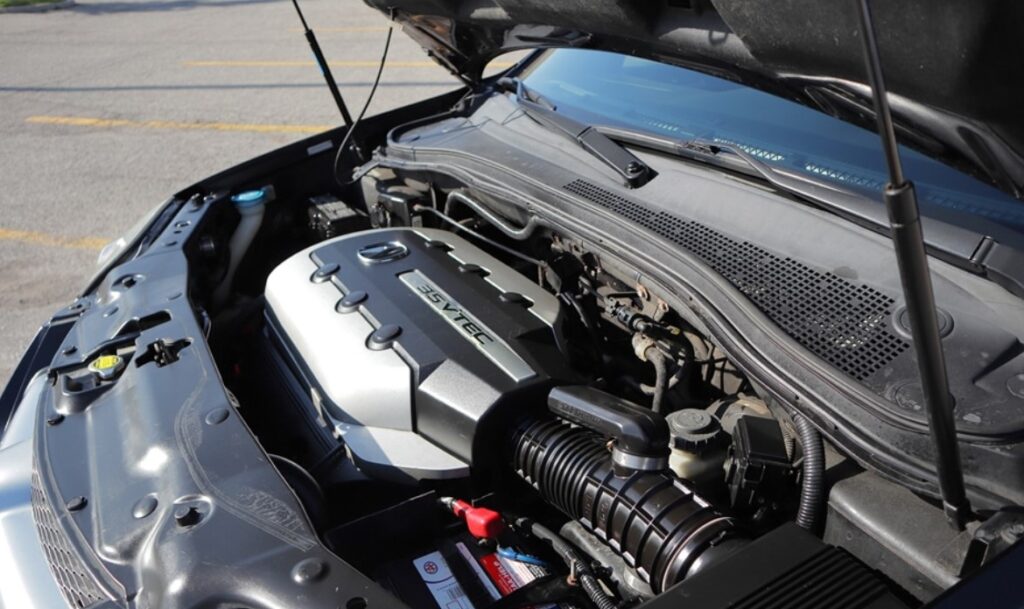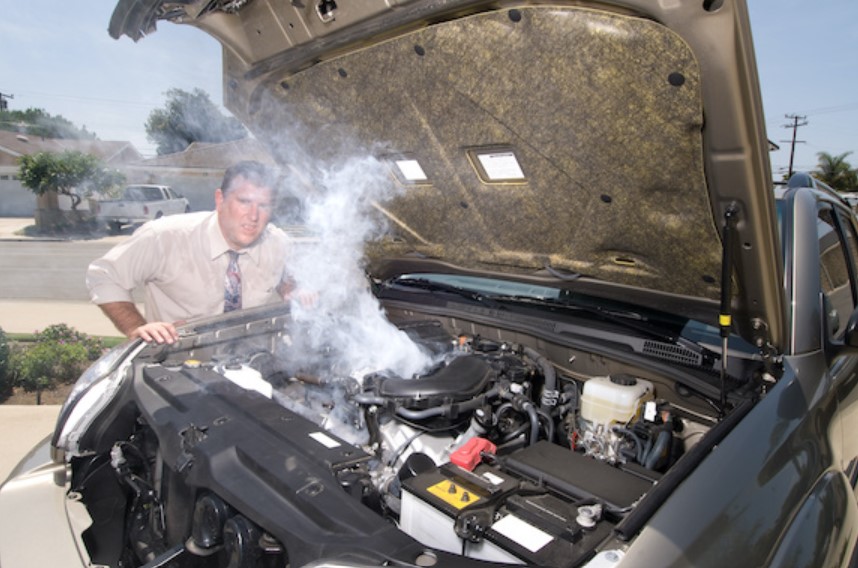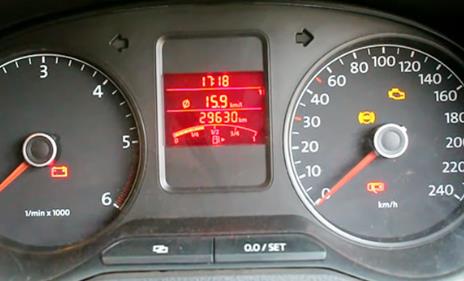Why Is My Engine Bay So Hot? All You Need To Know
Understanding Why Is My Engine Bay So Hot? is crucial for maintaining vehicle health and performance. The engine bay, the area housing your vehicle’s engine, is designed to withstand high temperatures. However, excessive heat can signal underlying issues. This article delves into the common reasons for a hot engine bay and provides actionable insights to address them.
Key Takeaways
- Recognize the normal operating temperature range for engine bays.
- Identify common causes of excessive engine bay heat.
- Learn maintenance tips to prevent overheating.
Why Is My Engine Bay So Hot?
The engine bay may become hot due to several reasons, including issues with the cooling system (like a failing radiator, water pump, or thermostat), leaks in the coolant system, insufficient coolant or engine oil levels, a clogged air filter, or excessive use of air conditioning. Regular maintenance and addressing these issues are essential for controlling engine bay temperatures.

Understanding Engine Bay Temperatures
The engine bay’s temperature largely depends on the engine’s workload. During normal operations, it can get quite hot, but it shouldn’t exceed certain thresholds. Overheating indicates problems that need immediate attention.
Normal Operating Temperatures
Most engines operate between 195 and 220 degrees Fahrenheit. The cooling system, including the radiator and coolant, helps maintain this temperature range. Regular maintenance of these components is key to preventing overheating.
Signs of Excessive Heat
If the engine bay is too hot, you might notice symptoms like:
- Reduced engine performance.
- Strange smells, like burning or hot oil.
- Warning lights on your dashboard.
Common Causes of High Engine Bay Temperatures
A hot engine bay can result from several factors. Understanding these can help in early detection and prevention of major issues.

Cooling System Failures
The cooling system is crucial in regulating engine temperature. Issues like a faulty thermostat, leaking coolant, or a damaged radiator can lead to overheating.
Insufficient Engine Oil
Engine oil lubricates moving parts, reducing friction and heat. Low oil levels or using the wrong type can cause the engine to run hotter than usual.
Engine Design and Environmental Factors
Engine design and environmental conditions also play a role in engine bay temperatures.
Engine Design
Some engines are designed to run hotter for efficiency. However, this requires robust cooling systems to manage the heat.
Environmental Factors
Hot climates or heavy traffic conditions can strain the cooling system, increasing engine bay temperatures.
Preventive Maintenance Tips
Regular maintenance is vital to keep your engine bay at a safe temperature.

Regular Checks and Services
Regularly check coolant levels and engine oil. Servicing your vehicle according to the manufacturer’s guidelines can prevent many overheating issues.
Upgrading Cooling Components
In some cases, upgrading cooling system components like high-performance radiators or better-quality coolant can help manage high temperatures.
Impact of Driving Habits on Engine Bay Temperature
Your driving style can significantly influence the temperature within the engine bay. Aggressive driving, like rapid acceleration and braking, puts additional stress on the engine, leading to higher temperatures.
Aggressive Driving and Engine Stress
When you drive aggressively, your engine works harder, producing more heat. This stress can overwhelm the cooling system, especially if it’s not in optimal condition. It’s important to drive smoothly and avoid putting unnecessary strain on the engine.
Long Idle Times and Heat Accumulation
Idling for extended periods, such as in traffic jams, can also cause the engine bay to heat up excessively. During idle, the airflow that helps cool the engine is reduced, leading to heat accumulation. Minimizing idle times can help maintain a cooler engine bay.
Effect of Accessory Use on Engine Temperature
Using various accessories in your vehicle can also impact engine bay temperatures. Accessories like air conditioning and power steering require power from the engine, which in turn generates more heat.
Air Conditioning and Engine Load
The use of air conditioning, especially on high settings, puts extra load on the engine. This additional demand can cause the engine to run hotter, increasing the temperature in the engine bay.
Power Steering and Additional Heat
Similarly, heavy use of power steering, particularly in situations like low-speed maneuvers or parking, can add to the engine’s workload. This increased demand can contribute to higher engine bay temperatures.
Air Flow and Ventilation in the Engine Bay
Proper airflow is essential for cooling the engine bay. Obstructions or design flaws can hinder this flow, leading to higher temperatures.

Importance of Air Flow
Good airflow helps dissipate heat from the engine bay. Ensuring that air intakes are clear and that the engine bay is not cluttered can significantly improve cooling efficiency.
Ventilation Design and Modifications
Some vehicles might benefit from modifications that improve airflow, such as vented hoods or aftermarket parts designed to enhance ventilation. These modifications can be particularly beneficial for high-performance vehicles or those operating in hot climates.
Advanced Cooling Technologies
Advancements in cooling technology have led to more efficient ways to manage engine bay temperatures. These technologies are particularly useful in high-performance or heavily modified vehicles.
High-Performance Cooling Systems
Upgraded radiators, water pumps, and cooling fans can significantly improve the cooling efficiency. These components are designed to handle higher heat loads, making them ideal for performance vehicles.
Innovative Cooling Solutions
Emerging technologies like electric cooling pumps and advanced coolant formulations offer new ways to keep engine temperatures in check. These innovations provide more precise control over engine temperature, even under demanding conditions.
Why Your Engine Is Too Hot Under The Hood?
An engine running too hot under the hood can be concerning. This excessive heat could be due to several reasons: a malfunctioning cooling system (like a failing radiator, water pump, or thermostat), a blocked coolant passage, a leak in the cooling system, or insufficient coolant levels.

Another reason might be a damaged or worn-out engine oil, as oil plays a critical role in cooling engine components. Even a clogged air filter or using the air conditioning system extensively in hot conditions can increase engine temperature. It’s crucial to address these issues promptly to prevent long-term damage to your engine.
Is It Normal For An Engine Bay To Be Hot?
Yes, it’s normal for an engine bay to be hot, as engines generate heat while running. The typical operating temperature for most engines is between 195°F and 220°F.
However, if the engine bay feels unusually hot, or if there are symptoms like a high-temperature gauge reading, steam, or a burning smell, it could indicate an overheating issue. Regular maintenance of the engine’s cooling system and ensuring proper oil levels can help maintain normal engine temperatures.
How Do I Reduce The Heat In My Engine Bay?
To reduce the heat in your engine bay, ensure the cooling system is functioning correctly. This includes checking for coolant leaks, ensuring the radiator and water pump are in good condition, and replacing the coolant at recommended intervals.

Regular oil changes are also crucial, as engine oil helps to dissipate heat away from the engine. Upgrading to a high-performance radiator or installing additional cooling fans can also be effective, especially for vehicles in hotter climates or for those that are heavily used. Keeping the engine bay clean and ensuring unobstructed airflow can also help in reducing heat.
Why Is My Engine So Hot But Not Overheating?
Your engine might be running hot without overheating due to several factors. It could be operating within its normal temperature range but on the higher end, which might feel hot but is not necessarily a sign of a problem.
This situation can occur in hot weather, under heavy loads, or during extended driving sessions. Another possibility is a partially obstructed coolant flow, which allows the engine to stay within a safe operating temperature but hotter than usual. Ensuring the cooling system is clear of blockages and functioning efficiently is essential in these cases.
Conclusion
A hot engine bay is a common issue but understanding its causes and maintaining your vehicle properly can prevent serious damage. Keeping your engine bay cool is essential for your vehicle’s longevity and performance. Regular checks and addressing any issues promptly will keep your engine running smoothly and efficiently.
Frequently Asked Questions
How often should I check my vehicle’s coolant level?
It’s a good practice to check your vehicle’s coolant level regularly, such as during oil changes or at least every few months. This ensures your cooling system has enough coolant to operate effectively.
Can a dirty air filter affect my engine’s temperature?
A dirty air filter can contribute to higher engine temperatures by restricting the flow of air into the engine. This restriction can make the engine work harder and run hotter than normal.
How do I know if my engine is overheating?
Signs of overheating include a temperature gauge reading high, steam or smoke coming from under the hood, an unusual smell like burning, or the engine performance decreasing. It’s essential to stop driving and check the engine if you notice these signs.
Can adding performance parts to my engine cause it to run hotter?
Performance parts can increase the engine’s power output, which often leads to higher operating temperatures. It’s important to upgrade the cooling system accordingly to handle this increased heat.
Does frequent idling lead to higher engine bay temperatures?
Frequent idling can lead to overheating as the engine receives less air flow for cooling compared to when the vehicle is in motion. This reduced air flow can cause the engine bay to heat up more than usual.

Welcome to the exhilarating world of Matt Rex, a professional car racer turned renowned vehicle enthusiast. Immerse yourself in his captivating blog as he shares heart-pounding adventures, expert reviews, and valuable insights on cars, trucks, jets, and more. Fuel your passion for speed and discover the beauty of vehicles through Matt’s engaging stories and meticulous expertise. Join the ever-growing community of enthusiasts who find inspiration and expert advice in Matt Rex’s blog—a digital hub where the thrill of speed meets the pursuit of knowledge.







